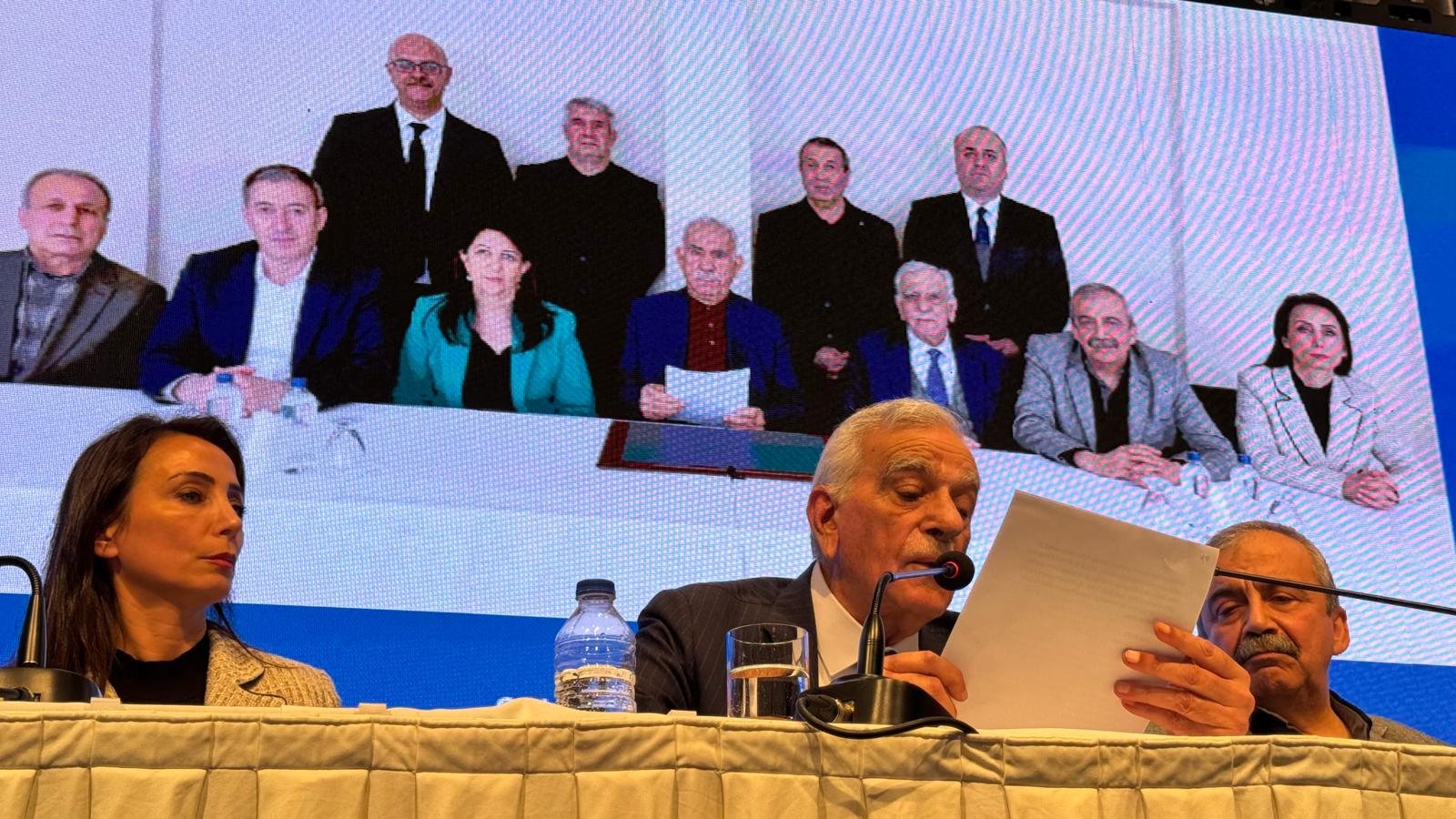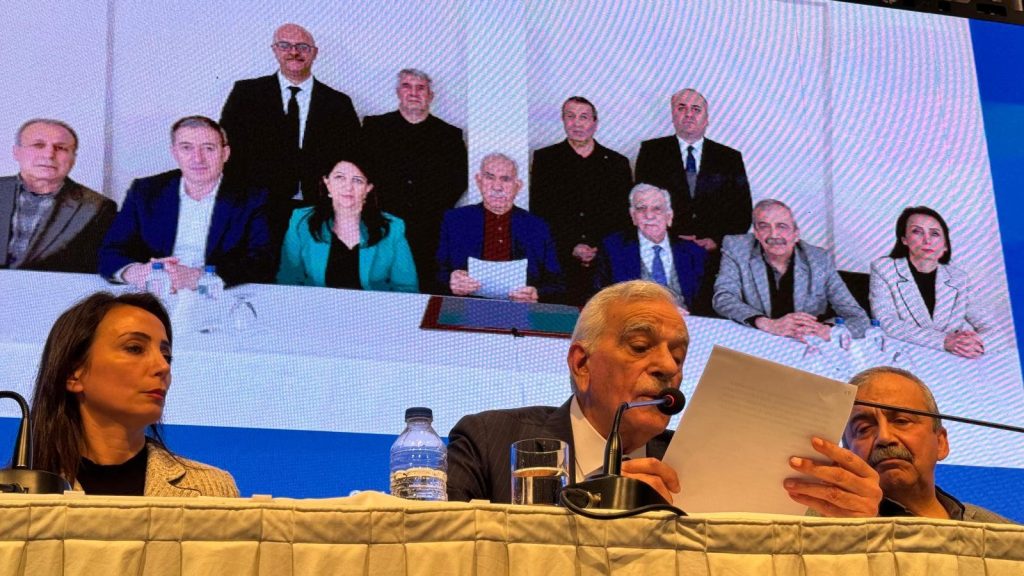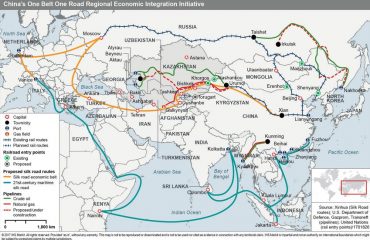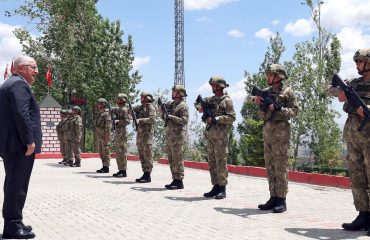

Can the call for PKK’s disarmament and dissolution open the door to a new peace process, or is it merely a strategic maneuver by a weakened organization? Will Öcalan’s appeal share the fate of past initiatives like the Oslo talks and the Solution Process, or does it mark the beginning of a new era? Given Türkiye’s security strategy and regional dynamics, much more is needed for the process to move forward. (Photo: Medyascope)
The long-standing PKK issue in Türkiye has once again taken center stage with Abdullah Öcalan’s call for the organization’s dissolution and an end to armed struggle. At first glance, this statement may seem like a historic turning point. However, when considering its legal, security, and geopolitical dimensions, it becomes clear that the matter is far from simple. Given Türkiye’s unitary state structure, counterterrorism policies, and regional security concerns, the feasibility of a process that results in the PKK’s disarmament and dissolution is a highly debated issue.
But the real critical question is: Does this call open the door to genuine peace, or is it a maneuver aimed at strengthening the PKK’s political and strategic position despite its weakening on the ground? And perhaps even more importantly: Even if the PKK lays down its arms, will its extensions such as the PYD/YPG in Syria continue to exist?
Legal framework challenges
The first four unchangeable articles of the Turkish Constitution strictly safeguard the country’s unitary structure. In this framework, the PKK’s historical demands for autonomy, federalism, or a distinct political identity are constitutionally impossible. Therefore, how any “political transformation” mechanism for the PKK would take shape within the constitutional framework remains a major question. Can the PKK truly abandon armed struggle and become a political actor, or is this just another strategic shift?
Another legal barrier is Türkiye’s counterterrorism legislation and criminal justice system. Given the crimes committed by PKK members in the past, how would amnesty or reintegration be structured? If the state grants amnesty to PKK members, this could trigger massive public backlash. Conversely, if PKK members are prosecuted and given heavy sentences, this may discourage those within the PKK who might otherwise heed Öcalan’s call.
This raises a key dilemma for Türkiye: If a legal mechanism is to be created for the PKK’s dissolution, how will this impact the country’s constitutional order and counterterrorism laws? Will mechanisms such as conditional amnesty or transitional justice, which were discussed during the Oslo talks and the Solution Process, come back onto the agenda?
In light of these legal uncertainties, one of the biggest obstacles to the PKK’s disarmament appears to be the rigid nature of the legal framework and the challenge of integrating PKK members into society without violating public conscience.
PKK’s strength and the PYD/YPG factor
It is a well-established fact that the PKK has been significantly weakened militarily within Türkiye. The operations conducted by the Turkish Armed Forces (TSK) and the National Intelligence Organization (MİT) have severely diminished the PKK’s operational strength in Türkiye. However, the issue of PKK disarmament is not limited to its presence within Türkiye. The critical question is: What will happen to the PKK’s Syrian extension, the PYD/YPG?
The PYD/YPG continues to receive support from the U.S. as a force fighting against ISIS in Syria. Despite Türkiye’s persistent warnings to Washington that the PYD/YPG is simply the PKK’s Syrian branch, the U.S. continues to provide military and logistical support to this group. This brings up the following question:
If the PKK truly disarms, will the PYD/YPG’s armed presence continue? If the answer is “yes,” then Türkiye’s security institutions will likely view this call not as a genuine peace initiative, but rather as a strategic maneuver to shift the struggle from Türkiye to Syria.
Is Öcalan’s call empty rhetoric, or does it have real implications on the ground? If it is clear that the PYD/YPG will not disarm, Türkiye will not take this process seriously and will not alter its security policies.
Another critical question is: Would the U.S. agree to disarm the PYD/YPG? Given Washington’s unwavering support for the YPG so far, this seems highly unlikely. If so, does that mean the call for the PKK’s disarmament is merely an empty statement?
At this point, Türkiye’s increasing military operations against the PYD/YPG could completely derail the process. For example, Türkiye could intensify its cross-border operations, escalating tensions with the U.S. and turning the call for the PKK’s dissolution into an argument justifying stronger military measures.
The U.S. position: Can a peace process succeed?
The most crucial external actor in the PKK’s disbandment process is undoubtedly the United States. While the U.S.
officially designates the PKK as a terrorist organization, it does not apply the same classification to the PYD/YPG and has taken great diplomatic pains to keep the distinction between them. Washington presents the PYD/YPG as a local partner against ISIS, ignoring Türkiye’s concerns and continuing its support.
But can this situation be tolerated by Türkiye? The answer is a clear no.
For Türkiye, there is no distinction between the PKK and the PYD/YPG, and for Öcalan’s call to have any real meaning, the PYD/YPG must also be disarmed or dissolved.
If the U.S. does not shift its stance, Türkiye faces two choices:
- Completely rejecting the process, viewing the PKK’s disarmament call as a tactical move, and maintaining its security policies as they are.
- Taking the PKK’s disarmament seriously while intensifying military operations against the PYD/YPG.
In either scenario, further deterioration of U.S.-Türkiye relations is inevitable. If the U.S. were to abandon the PYD/YPG, it would strengthen its strategic alliance with Türkiye, but at a significant geopolitical cost.
Will the call for disbandment lead to peace, or is it a new strategy?
At first glance, Öcalan’s call seems to offer a new hope for peace in Türkiye. However, when the ground realities are examined, serious contradictions emerge:
- Türkiye’s legal and constitutional framework makes any transformation of the PKK into a political entity nearly impossible.
- The armed presence of the PYD/YPG in Syria means that disarmament would be incomplete and ineffective from Türkiye’s perspective.
- U.S. support for the YPG remains a major obstacle, making Türkiye unlikely to see this call as a viable step toward peace.
Ultimately, the fate of the PKK’s disarmament and dissolution depends not only on developments within Türkiye but also on the geopolitical stance of the United States. Unless Washington withdraws its support for the YPG and Türkiye’s security concerns are addressed, this call will likely go down in history as yet another failed attempt at peace—one more diplomatic maneuver rather than a genuine step toward resolution.


